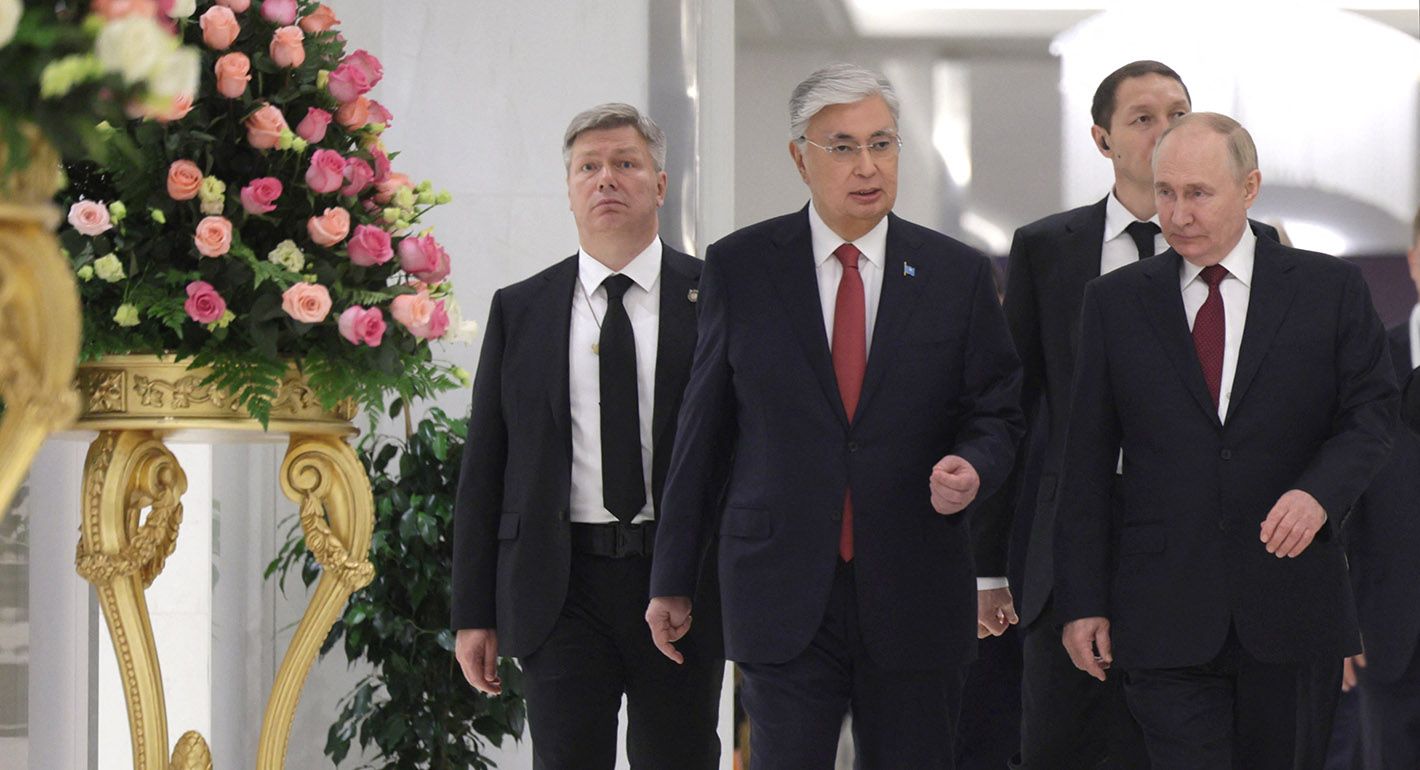As usual, the most recent Shanghai Cooperation Organization (SCO) summit, which was hosted by Kazakhstan this week, attracted a lot of international attention. People monitor what happens at the SCO in search of justification for their own fears. Some are afraid Russia and China will use the SCO to build a military alliance like NATO, while others believe it could become the foundation of a new, anti-democratic world order.
However, the SCO’s successes since it was enlarged in 2001 from the Shanghai Five have been few and far between, essentially limited to attracting new members and avoiding high-profile scandals. Every new member nation seeks to use the SCO to promote its own foreign policy priorities. As well as making the SCO less and less effective, this gives it an increasingly threatening reputation.
According to the SCO charter, the organization’s goals include strengthening relationships between member states, developing cooperation in a variety of different areas, opposing the “three evils” (terrorism, separatism, and extremism), and promoting human rights and fundamental freedoms in accordance with existing national laws. The charter does not, however, provide much in the way of clarity on why the SCO is actually needed. And that aids member states as they try to use the SCO to advance their own agendas.
Russia, for example, always tries to get the SCO to express solidarity with its foreign policy adventures. In 2008, after the Russian invasion of Georgia, then Russian president Dmitry Medvedev raised the question of the independence of South Ossetia; in 2014, Russia sought recognition of the annexation of Crimea; and, in 2022, after the full-scale invasion of Ukraine, Moscow attempted to get SCO members to vote as a bloc at the United Nations. In a similar way, China uses the SCO to promote its pet terminologies, such as “community of common destiny,” which crop up in formal SCO documents, while Kazakhstan insists the organization should focus on developing transit routes.
At the SCO’s annual summits, leaders make a plethora of announcements that are dutifully relayed by news agencies but rarely become reality. While the roster of SCO committees and councils looks impressive, they are actually just a home for pen-pushing bureaucrats. For example, the SCO’s Business Council has put on plenty of events, but not once in twenty years has it facilitated a significant business transaction between member states. The SCO’s Interbank Consortium does nothing apart from holding seminars.
If there’s one SCO organ that should operate effectively, it’s the Regional Anti-Terrorist Structure. But it does little more than help member states organize military exercises. When a major terrorist attack takes place in a member state, all that can be found on the Regional Anti-Terrorist Structure’s website are press releases expressing condolences.
The SCO has not always been so ineffective. When the organization was set up as the Shanghai Five in 1996, it helped handle the delineation of borders between China and former Soviet nations. After this, there were hopes it would become a platform for promoting cooperation between Russia and China in the post-Soviet space, but Moscow and Beijing were not able to come to the necessary agreements.
At first, Beijing tried to turn the SCO into an instrument through which it could realize its economic and security ambitions in Central Asia. The SCO did put on regular military exercises, as well as help to establish contact between members’ defense and security establishments. The SCO’s other achievements include squeezing out NATO bases from Central Asia. Although the main reason for Washington’s departure from the region was domestic issues in Uzbekistan and Kyrgyzstan, coordination between Beijing and Moscow also played a role.
Economic cooperation has proved harder to achieve. When Russia blocked China’s two main ideas (the creation of a development bank and a free trade zone), Beijing began acting independently of the SCO. To this day, the economic links between China and Central Asia come under China’s Belt and Road Initiative, bilateral agreements, or the China-plus-Central Asia format—which excludes Russia.
All of this meant that when Russia began pushing for the expansion of the SCO, China was disengaged enough to be unconcerned about its effectiveness being diluted. India and Pakistan joined the SCO in 2017, and Iran in 2022. Belarus became the tenth member of the group at the most recent summit in Kazakhstan. It goes without saying that with such a diverse membership, it’s difficult to get anything off the ground.
Today, the bloated SCO has become little more than a talking club for leaders of friendly countries. The SCO could even get bigger in coming years. Indeed, why not join if membership does not entail taking on any responsibilities? However much the SCO would like to convince others that it is capable of changing facts on the ground, the reality is very different.
Russia is still trying to get the SCO to align with its own ideological mission, but Moscow’s ideology doesn’t fit very well with the foreign policy priorities of other member states. Before the 2022 SCO summit in Samarkand, Uzbek officials even felt obliged to publicly contradict Russian journalists who suggested that the SCO was “Russia’s answer to NATO.”
The degradation of the SCO is yet another example of how Russia’s lack of a systematic approach in foreign policy undermines Russian influence, even in places where Moscow had a nearly monopolistic presence after the collapse of the Soviet Union. Fearing competition with China, Russia blocked initiatives that could have turned the SCO into an effective regional organization. Instead, Moscow chose to find itself in a situation where Chinese influence in Central Asia still became a reality, while Russia was left with a mere shell of an institution capable of only hosting meetings and generating self-indulgent headlines.


.jpg)



